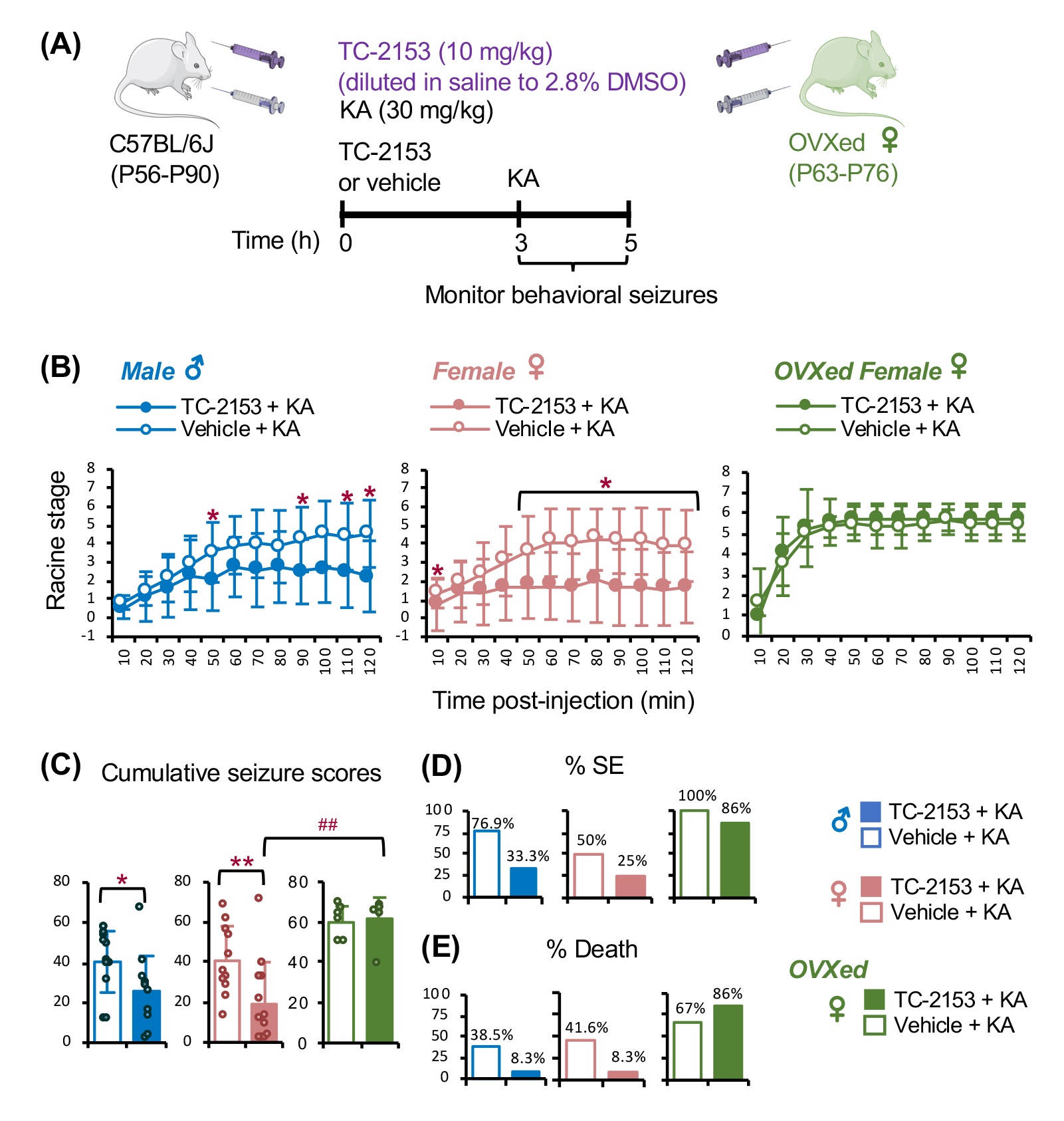 Jennifer Walters joined the program on January 1, 2021, while a third-year student, and is expected to graduate in the spring or summer of 2023. Her graduate program is neuroscience and she completed her undergraduate degree in neuroscience at the University of Illinois at Urbana-Champaign. Her current research studies the role of STriatal-Enriched protein tyrosine Phosphatase (STEP61) in the development of TLE.
Jennifer Walters joined the program on January 1, 2021, while a third-year student, and is expected to graduate in the spring or summer of 2023. Her graduate program is neuroscience and she completed her undergraduate degree in neuroscience at the University of Illinois at Urbana-Champaign. Her current research studies the role of STriatal-Enriched protein tyrosine Phosphatase (STEP61) in the development of TLE.
In June 2021, she submitted an abstract to the American Epilepsy Society for presentation at their annual conference in December. She currently has a manuscript under review with Epilepsia and is completing lab rotations under the advisement of Hee Jung Chung and Hyunjoon Kong.
Walters has taken the Special Topics in MBM course and participated in other trainee activities such as the Summer Journal Club readings/discussion meetings and Frontiers in Miniature Brain Machinery lectures. She has completed coursework in research ethics in addition to neuroscience coursework.
Research Highlights (in her own words):
My latest research project and focus of interest, Striatal Enriched protein tyrosine Phosphatase (STEP), is a brain-specific tyrosine (Tyr) phosphatase encoded by the PTPN5 gene.
It is possible that the genetic deletion of STEP may have compensatory effects on other related genes and/or pathways, providing complications to delineating the specific role of STEP in seizure susceptibility. Therefore, in this study we test the hypothesis that acute pharmacological inhibition of STEP may increase seizure propensity. We used STEP inhibitor TC-2153 (benzopentathiepin 8-(trifluoro-methyl)-1,2,3,4,5-benzopentathiepin-6-amine-hydrochloride). At 3 hours post-injection of vehicle or TC-2153, we induced acute seizures by a single systemic injection of kainic acid.

Contrary to our original hypothesis, our results showed that prior treatment with TC-2153 reduced total seizure scores in males by ~34% and females by ~70% compared to vehicle-injected control. Ovariectomy (OVX) abolished the TC-2153-induced decrease in seizure propensity in females, implicating sex-derived hormones. By utilizing calcium imaging techniques, we show that TC-2153 treatment significantly reduced the network excitability of acute hippocampal slices from both male and female adult mice. Ultimately, these results suggest that acute pharmacological inhibition of STEP by TC-2153 decreases seizure propensity in a sex-dependent manner, in part by reducing hippocampal network and intrinsic excitability.
Reflections on MBM:
Based on these findings I collected during my time in the Neuroscience program and MBM traineeship, I have submitted a manuscript to Epilepsia and it is currently under review. In the future, I am hoping to continue this research in the realm of studying the effects of STEP inhibitor TC-2153 in human-derived neurons (and potentially human brain organoids) by using calcium imaging to assess their activity post-drug treatment in collaboration with Dr. Hyunjoon Kong’s lab. I found many of the workshops enlightening and useful this semester, especially the growth mindset course and some of the main seminars given by prominent faculty.

